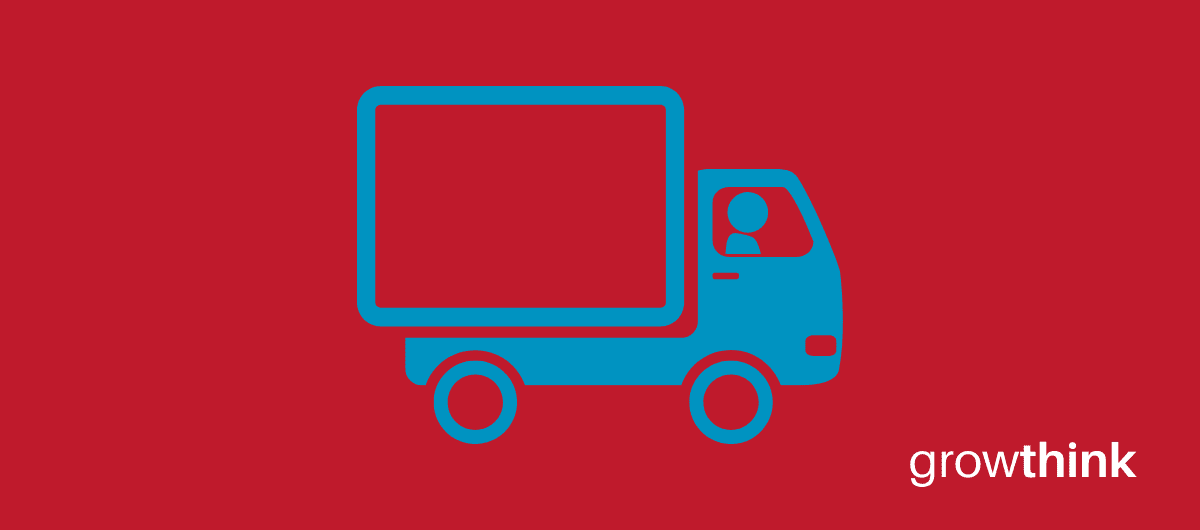
On This Page:
- Start a Trucking Company of Your Own
- 15 Steps To Start a Trucking Business
- How Big is the Trucking Industry?
- What are the Key Segments of the Trucking Industry?
- What External Factors Affect the Trucking Industry?
- Who are the Key Competitors in the Trucking Market?
- What are the Key Customer Segments in the Trucking Market?
- What are the Typical Startup Costs for a New Trucking Business?
- Is Owning a Trucking Business Profitable?
- How to Start a Trucking Business FAQs
- Helpful Videos
- Additional Resources
Start a Trucking Company of Your Own
If trucking is your passion, the business ideas are plentiful. A trucker’s job is one of the most satisfying occupations there is because they can use their creativity and ingenuity to be successful in a variety of circumstances. There are many different businesses that you might want to start on your own from hauling products across the country, to being an owner-operator who delivers goods locally.
No matter what business idea you have in mind, starting a trucking company requires some knowledge about how to run it successfully.
Importantly, a critical step in starting a trucking business is to complete your business plan. To help you out, you should download Growthink’s Ultimate Trucking Business Plan Template here.
15 Steps To Start a Trucking Business:
Starting a trucking business can be very profitable. With proper planning, execution and hard work, you can enjoy great success. Below you will learn the keys to launching a successful trucking business.
1. Choose the Name for Your Trucking Business
The first step to starting a trucking business is to choose your business’ name.
This is a very important choice since your company name is your brand and will last for the lifetime of your business. Ideally you choose a name that is meaningful and memorable. Here are some tips for choosing a name for your trucking business:
- Make sure the name is available: Check your desired name against trademark databases and your state’s list of registered business names to see if it’s available. Also, check to see if a suitable domain name is available.
- Keep it simple: The best names are usually ones that are easy to remember, pronounce, and spell.
- Think about marketing: Come up with a name that reflects the desired brand and/or focus of your trucking business.
2. Determine the Type of Trucking Business You Will Launch
When determining the type of trucking business you will launch, you need to consider various factors, including your budget, available resources, market demand, and personal preferences. The trucking industry offers different types of specialized services to cater to specific needs.
Here are some types of trucking businesses to consider:
- Freight Trucking: General freight trucking involves transporting a wide range of goods, including dry goods, consumer products, and industrial materials. It’s a versatile and common type of trucking business.
- Refrigerated Trucking (Reefer): Reefer trucking specializes in transporting temperature-sensitive cargo, such as perishable food, pharmaceuticals, and chemicals. Refrigerated trailers maintain controlled temperatures.
- Flatbed Trucking: Flatbed trucking is ideal for transporting oversized or irregularly shaped cargo, such as construction equipment, machinery, and building materials.
- Tanker Trucking: Tanker trucks are used to transport liquids and gases, including petroleum products, chemicals, and food-grade liquids like milk and juices.
- Hazmat (Hazardous Materials) Trucking: Hazmat trucking involves transporting hazardous materials that require special handling and compliance with strict safety regulations.
- Specialized Freight Trucking: Specialized freight trucking focuses on unique cargo, such as oversized loads, heavy machinery, or high-value goods that require specialized equipment and expertise.
3. Develop Your Trucking Business Plan
One of the most important steps in starting a trucking business is to develop your trucking business plan. The process of creating your plan ensures that you fully understand your market and your business strategy. The plan also provides you with a roadmap to follow and if needed, to present to funding sources to raise capital for your business.
To enhance your planning process, incorporating insights from a sample trucking business plan can be beneficial. This can provide you with a clearer perspective on industry standards and effective strategies, helping to solidify your own business approach.
Your business plan should include the following sections:
- Executive Summary: This section should summarize your entire business plan so readers can quickly understand the key details of your trucking business.
- Company Overview: This section tells the reader about the history of your trucking business and what type of trucking business you operate. For example, are you a freight trucking, refrigerated trucking, or flatbed trucking business.
- Industry Analysis: Here you will document key information about the trucking industry. Conduct market research and document how big the industry is and what trends are affecting it.
- Customer Analysis: In this section, you will document who your ideal or target customers are and their demographics. For example, how old are they? Where do they live? What do they find important when purchasing services like the ones you will offer?
- Competitive Analysis: Here you will document the key direct and indirect competitors you will face and how you will build competitive advantage.
- Marketing Plan – your marketing plan should address the 4Ps: Product, Price, Promotions and Place.
- Product: Determine and document what products/services you will offer
- Prices: Document the prices of your products/services
- Place: Where will your business be located and how will that location help you increase sales?
- Promotions: What promotional methods will you use to attract customers to your trucking business? For example, you might decide to use pay-per-click advertising, public relations, search engine optimization, and/or social media marketing.
- Operations Plan: Here you will determine the key processes you will need to run your day-to-day operations. You will also determine your staffing needs. Finally, in this section of your plan, you will create a projected growth timeline showing the milestones you hope to achieve in the coming years.
- Management Team: This section details the background of your company’s management team.
- Financial Plan – finally, the financial plan answers questions including the following:
- What startup costs will you incur?
- How will your trucking business make money?
- What are your projected sales and expenses for the next five years?
- Do you need to raise funding to launch your business?
Finish Your Business Plan Today!
If you’d like to quickly and easily complete your business plan, download Growthink’s Ultimate Business Plan Template and complete your plan and financial model in hours.
4. Choose the Legal Structure for Your Trucking Business
Next you need to choose a legal structure for your trucking business and register it and your business name with the Secretary of State in each state where you operate your business.
Below are the five most common legal structures:
1) Sole Proprietorship
A sole proprietorship is a business entity in which the owner of the trucking business and the business are the same legal person. The owner of a sole proprietorship is responsible for all debts and obligations of the business. There are no formalities required to establish a sole proprietorship, and it is easy to set up and operate. The main advantage of a sole proprietorship is that it is simple and inexpensive to establish. The main disadvantage is that the owner is liable for all debts and obligations of the business.
2) Partnerships
A partnership is a legal structure that is popular among small businesses. It is an agreement between two or more people who want to start a trucking business together. The partners share in the profits and losses of the business.
The advantages of a partnership are that it is easy to set up, and the partners share in the profits and losses of the business. The disadvantages of a partnership are that the partners are jointly liable for the debts of the business, and disagreements between partners can be difficult to resolve.
3) Limited Liability Company (LLC)
A limited liability company, or LLC, is a type of business entity that provides limited liability to its owners. This means that the owners of an LLC are not personally responsible for the debts and liabilities of the business. The advantages of an LLC for a trucking business include flexibility in management, pass-through taxation (avoids double taxation as explained below), and limited personal liability. The disadvantages of an LLC include lack of availability in some states and self-employment taxes.
4) C Corporation
A C Corporation is a business entity that is separate from its owners. It has its own tax ID and can have shareholders. The main advantage of a C Corporation for a trucking business is that it offers limited liability to its owners. This means that the owners are not personally responsible for the debts and liabilities of the business. The disadvantage is that C Corporations are subject to double taxation. This means that the corporation pays taxes on its profits, and the shareholders also pay taxes on their dividends.
5) S Corporation
An S Corporation is a type of corporation that provides its owners with limited liability protection and allows them to pass their business income through to their personal income tax returns, thus avoiding double taxation. There are several limitations on S Corporations including the number of shareholders they can have among others.
Once you register your trucking business, your state will send you your official “Articles of Incorporation.” You will need this among other documentation when establishing your banking account (see below). We recommend that you consult an attorney in determining which legal structure is best suited for your company.
Incorporate Your Business at the Guaranteed Lowest Price
We are proud to have partnered with Business Rocket to help you incorporate your business at the lowest price, guaranteed.
Not only does BusinessRocket have a 4.9 out of 5 rating on TrustPilot (with over 1,000 reviews) because of their amazing quality…but they also guarantee the most affordable incorporation packages and the fastest processing time in the industry.
Incorporate with BusinessRocket at the guaranteed lowest price now.
5. Secure Startup Funding for Your Trucking Business (If Needed)
In developing your trucking business plan, you might have determined that you need to raise funding to launch your business.
If so, the main sources of funding for a trucking business to consider are personal savings, family and friends, credit card financing, bank loans, crowdfunding and angel investors. Angel investors are individuals who provide capital to early-stage businesses. Angel investors typically will invest in a trucking business that they believe has high potential for growth.
6. Secure a Location for Your Business
When searching for the right space for your trucking business, consider the following factors to ensure operational efficiency and compliance with local regulations:
- Zoning Regulations: Check local zoning laws and regulations to determine if the area you’re considering is zoned for industrial or commercial use, which is typically required for trucking businesses.
- Accessibility: Choose a location with easy access to major highways, interstates, and transportation hubs to streamline the movement of trucks and cargo.
- Parking and Staging Area: Ensure that the space has ample parking and staging areas for your trucks and trailers, allowing for safe loading, unloading, and maintenance.
- Proximity to Customers: Consider the proximity of the space to your primary customer base, as reducing travel distances can lower transportation costs and improve service efficiency.
- Security Measures: Evaluate the security of the location, including fencing, lighting, surveillance, and on-site security personnel, to protect your equipment and cargo.
- Adequate Space: Determine if the space provides enough room for your fleet, including parking, maintenance, and administrative facilities.
7. Register Your Trucking Business with the IRS
Next, you need to register your business with the Internal Revenue Service (IRS) which will result in the IRS issuing you an Employer Identification Number (EIN).
Most banks will require you to have an EIN in order to open up an account. In addition, in order to hire employees, you will need an EIN since that is how the IRS tracks your payroll tax payments.
Note that if you are a sole proprietor without employees, you generally do not need to get an EIN. Rather, you would use your social security number (instead of your EIN) as your taxpayer identification number.
8. Open a Business Bank Account
It is important to establish a bank account in your trucking business’ name. This process is fairly simple and involves the following steps:
- Identify and contact the bank you want to use
- Gather and present the required documents (generally include your company’s Articles of Incorporation, driver’s license or passport, and proof of address)
- Complete the bank’s application form and provide all relevant information
- Meet with a banker to discuss your business needs and establish a relationship with them
9. Get a Business Credit Card
You should get a business credit card for your trucking business to help you separate personal and business expenses.
You can either apply for a business credit card through your bank or apply for one through a credit card company.
When you’re applying for a business credit card, you’ll need to provide some information about your business. This includes the name of your business, the address of your business, and the type of business you’re running. You’ll also need to provide some information about yourself, including your name, Social Security number, and date of birth.
Once you’ve been approved for a business credit card, you’ll be able to use it to make purchases for your business. You can also use it to build your credit history which could be very important in securing loans and getting credit lines for your business in the future.
10. Get the Required Business Licenses and Permits
Starting a trucking business involves obtaining various licenses and permits to operate legally and ensure compliance with local, state, and federal regulations.
Here is a list of licenses and permits commonly required for a trucking business:
- Business License: A general business license is often required at the local or municipal level and allows you to operate your trucking company within a specific jurisdiction.
- Motor Carrier Operating Authority (MC Number): Issued by the Federal Motor Carrier Safety Administration (FMCSA), an MC number is necessary for interstate trucking operations. It is also known as an Interstate Operating Authority.
- USDOT Number: A USDOT number is required by the FMCSA for commercial vehicles involved in interstate transportation. It helps track safety information, inspections, and compliance.
- State Operating Authority: Some states require an additional state operating authority or intrastate authority if you conduct purely intrastate (within-state) trucking operations.
- Commercial Driver’s License (CDL): All truck drivers must obtain a CDL from their state’s Department of Motor Vehicles (DMV). Different classes of CDLs are available depending on the type of vehicle and cargo you intend to transport.
- Motor Carrier Identification Report (MCS-150): File this form with the FMCSA to register your business and provide important details about your trucking operation.
Depending on the type of trucking business you launch, you will have to obtain the necessary state, county and/or city licenses.
11. Get Business Insurance for Your Trucking Business
Operating a trucking business involves various risks, and having the right insurance coverage is crucial to protect your assets, employees, and cargo. The type of insurance you need for your trucking business depends on several factors, including the nature of your operations, the cargo you transport, and the size of your fleet.
Here are the primary types of insurance coverage typically required for a trucking business:
- Commercial Auto Liability Insurance: This is a fundamental insurance requirement for all trucking businesses. It provides coverage for bodily injury and property damage caused by your commercial vehicles in the event of an accident.
- Cargo Insurance: Cargo insurance protects the goods you transport in case they are damaged, stolen, or lost during transit. The coverage amount should reflect the value of the cargo you typically carry.
- Physical Damage Insurance: Physical damage insurance covers the cost of repairing or replacing your commercial vehicles if they are damaged in accidents, theft, vandalism, or other covered incidents.
- General Liability Insurance: General liability insurance provides coverage for third-party bodily injury and property damage claims that may occur outside of vehicle-related accidents, such as slip and fall incidents at your business premises.
- Workers’ Compensation Insurance: If you have employees, workers’ compensation insurance is typically required by law to cover medical expenses and lost wages for employees who are injured on the job.
Find an insurance agent, tell them about your business and its needs, and they will recommend policies that fit those needs.
12. Buy or Lease the Right Trucking Business Equipment
Running a trucking business requires a range of equipment to ensure the smooth operation of your fleet and comply with safety and regulatory standards.
Here’s a list of essential equipment you need to run your trucking business effectively:
- Commercial Vehicles: These are the mainstay of your trucking business, including tractor-trailers for long-haul, straight trucks for local deliveries, and specialized vehicles like flatbeds, tankers, and reefers.
- Maintenance and Repair Equipment: Properly equipped maintenance facilities with tools, diagnostic equipment, and mobile repair gear are essential to keep your fleet running smoothly.
- Safety Equipment: Safety gear like reflective vests, cones, fire extinguishers, and first-aid kits ensures compliance with safety regulations and protects your drivers and cargo.
- Communication Devices: Effective communication is vital. Two-way radios, GPS systems, and mobile phones keep your drivers in touch with dispatch and each other.
- Load Securing Equipment: Straps, chains, binders, and load bars are used to secure cargo during transport, ensuring it arrives intact and undamaged.
- Cargo Handling Equipment: Forklifts, pallet jacks, and lift gates facilitate the efficient loading and unloading of cargo.
13. Develop Your Trucking Business Marketing Materials
Marketing materials will be required to attract and retain customers to your trucking business.
The key marketing materials you will need are as follows:
- Logo: Spend some time developing a good logo for your trucking business. Your logo will be printed on company stationery, business cards, marketing materials, and so forth. The right logo can increase customer trust and awareness of your brand.
- Website: Likewise, a professional trucking business website provides potential customers with information about the services you offer, your company’s history, and contact information. Importantly, remember that the look and feel of your website will affect how customers perceive you.
- Social Media Accounts: Establish social media accounts in your company’s name. Accounts on Facebook, Twitter, LinkedIn, and/or other social media networks will help customers and others find and interact with your trucking business.
14. Purchase and Setup the Software Needed to Run Your Trucking Business
Running a successful trucking business requires various software applications to manage operations, logistics, compliance, and communication effectively.
Here’s a list of essential software you’ll need to run a trucking business:
- Transportation Management System (TMS): TMS software helps manage and optimize the movement of freight, including load planning, routing, and scheduling.
- Fleet Management Software: Fleet management software tracks and manages your entire fleet, including maintenance schedules, fuel efficiency, and vehicle diagnostics.
- Electronic Logging Device (ELD) Software: ELD software is essential for compliance with Hours of Service (HOS) regulations, helping drivers log their driving hours accurately.
- Dispatch and Routing Software: This software assists in planning efficient routes, assigning jobs to drivers, and providing real-time updates on deliveries.
- Accounting and Invoicing Software: Accounting software simplifies financial management, including invoicing, expense tracking, and payroll processing.
- Customer Relationship Management (CRM) Software: CRM software helps manage customer relationships, track sales, and streamline communication with clients.
Research the software that best suits your needs, purchase it, and set it up.
15. Open for Business
You are now ready to open your trucking business. If you followed the steps above, you should be in a great position to build a successful business. Below are answers to frequently asked questions that might further help you.
Finish Your Business Plan Today!
If you’d like to quickly and easily complete your business plan, download Growthink’s Ultimate Business Plan Template and complete your plan and financial model in hours.
How Big is the Trucking Industry?
The trucking industry has one of the largest revenue streams in the nation’s economy. Total industry revenues reached $791 billion last year and employed over two million people, including truckers, dispatchers, trucking company managers, and agents. The industry moves 70% of all goods that are purchased across state lines each year.
What are the Key Segments of the Trucking Industry?
The trucking industry is divided into three key segments: full truckload (FTL), less than truckload (LTL), and couriers.
Full Truckload (FTL) trucking accounts for the largest trucking segment, about 75% of the market. These companies primarily serve customers with freight that is not temperature-sensitive and requires transportation. FTL truckers move products across long distances between truck terminals and distribution centers.
Less than truckload (LTL) trucking is another trucking segment that provides services to businesses in areas with frequent local deliveries. LTL truckers transport truckload shipments to local businesses, warehouses, retailers, manufacturers, government agencies, construction sites, utility companies, and farms.
Couriers, or expedited truck transport, are the third trucking segment and they transport products under 100 pounds including packages, documents, and items. These services generally provide short-distance delivery services within 48 hours, whereas a regular truckload delivery could be anywhere from 1-7 days.
What External Factors Affect the Trucking Market?
The following are among the several external factors affecting the trucking market:
Economic factors directly impact the industry. If there is a large demand for goods or services, truck transportation will rise due to an increase in shipments moving across the country.
With the truck driver shortage on the rise, trucking companies will be forced to increase pay rates to attract new hires. This means larger businesses may reduce their overhead by outsourcing this process to smaller trucking companies that are not as well known.
There is an increasing amount of safety concerns within the truck driving industry regarding accidents caused by tired or distracted truckers.
Autonomous commercial vehicles have been used in truck driving for several years already. Self-driving trucks have been developed and tested through many different industries, including mining and farming.
Alt Image Text: Industry Trends
Who are the Key Competitors in the Trucking Market?
The trucking industry is a competitive one. Trucking company owners have to be willing to work around the clock to succeed in the industry. There are 3 major competitors in the industry: UPS, FedEx, and XPO.
What are the Key Customer Segments in the Trucking Market?
The market has many customer segments that it serves, but there are five key groups that the industry focuses on the most. These include: residential, government/military, food and beverage companies, manufacturing companies, and retail stores.
-
Residential-Residential customers are those that have small families or live alone. These people have the largest amount of money to spend on food and luxuries, but they generally can’t carry items home from a store because their cars are small. Residential customers also place more emphasis on having fresh produce delivered quickly so they don’t have to go to the grocery store frequently.
Government & Military-Government and military institutions often need supplies shipped around the nation or world. They generally use large vehicles for this purpose, which makes them one of the industry’s largest groups of clients.
Food & Beverage Companies-Food companies rely heavily on trucking services because many foods cannot be refrigerated until they reach their final destination.
Manufacturing Companies-Many manufacturing companies outsource their shipping to large distribution centers where trucks can easily pick up and drop off products without needing to go door-to-door. Sometimes these materials will be delivered directly from a plant or other location while other times they will be produced at another facility before being shipped out.
Retail Stores-The retail industry is one of the biggest users of trucking services because it relies heavily on having merchandise delivered quickly and accurately. These stores order many different types of goods from several different manufacturers, but they all need them shipped reliably for them to be able to sell the products they receive.
What are the Typical Startup Costs for a New Trucking Company?
Typically, start-up expenses for a trucking business can range from $6,000 to over $100,000, depending on the type of truck and clientele.
Some of the major costs include:
- Warehouse – You’ll need to purchase or lease a building with sufficient warehouse space to store your products in addition to making room for employees.
- Office – In addition to the warehouse, you’ll need an office to manage your company’s day-to-day operations.
- Trucks – It’s likely that you will need more than one vehicle when opening your own trucking company, so be prepared to purchase new trucks, trailers, and other equipment at the outset.
- Equipment – Depending on the type of trucking services that you plan to offer, you may need a variety of equipment from ramps to cargo spreaders to specialized cranes.
- Business Licenses, Insurance, and Permits – In addition to trademarking your business name and logo and registering your business with local and federal authorities, you’ll also need all the required commercial drivers’ licenses, insurance, and permits that are necessary to operate.
Is Owning a Trucking Business Profitable?
There is no one-size-fits-all answer to this question, as the profitability of a trucking business depends on a number of factors, such as the type of cargo you haul and the routes you travel. However, most experts agree that owning and operating a trucking company can be profitable if you’re knowledgeable about the industry and run your business efficiently.
One important thing to keep in mind is that there are many expenses associated with running a trucking company, so it’s important to have a solid understanding of your overhead costs. Additionally, profits can vary greatly from month to month, so it’s important to maintain healthy cash flow throughout the year.
Despite these challenges, there are many successful truckers who have launched successful trucking businesses. It’s up to you to determine whether this industry is right for you and your business goals.
How to Finish Your Trucking Business Plan in 1 Day!
Don’t you wish there was a faster, easier way to finish your trucking business plan?
With Growthink’s Ultimate Trucking Business Plan Template you can finish your plan in just 8 hours or less!
Click here to finish your trucking business plan today.
How to Start a Trucking Company FAQs
What licenses do I need to start a trucking company?
In addition to a business license, you need to get a commercial driver's license (CDL) and hazmat endorsement.
To get a CDL, you must apply for a driver's license with your state Department of Motor Vehicles (DMV). Your commercial driver's license will be in addition to your normal driver's license, and you can apply for it when upgrading your driver's license.
Meanwhile, a hazmat endorsement means you have the appropriate commercial license to drive on roadways and deliver hazardous materials. In most cases, you can get a hazmat endorsement after getting your CDL. Some states may have different requirements, so check with the DMV in your location.
Where do I find loads for my trucking company?
There are several methods for new trucking company owners to locate loads. To begin with, it's worth noting that brokers will not always work with start-ups in the freight industry if they don't have a good reputation.
Using load boards is a viable alternative. They provide an open market for new and established businesses with accessible loads.
Another approach to locate freight is to make connections with direct shippers. It will be simpler to obtain top freight if you cultivate friendly trucker relationships. If you meet truckers while on the road, ask them for recommendations on reputable freight suppliers. This may help you get in touch with some excellent shippers or brokers.
What types of insurance are required for a trucking business?
Whatever trucking company you open, it's vital to have a few types of insurance to make sure you’re covered.
Outside of the required business insurance, you will also need full-coverage liability insurance for each truck and truck cargo insurance. There are different types of trucking companies out there, but these basics will always be the same.
Where Can I Download a Trucking Business Plan PDF?
You can download our trucking business plan PDF template here. This is a business plan template you can use in PDF format.
Helpful Videos
Starting Your Own Trucking Company | What You NEED To Know
How To Start A Trucking Business: Trucking Company Startup Checklist
Digital Marketing Strategy For Trucking & Logistics
Additional Resources
American Trucking Associations
Owner-Operator Independent Drivers Association

 Business Plan Template & Guide For Small Businesses
Business Plan Template & Guide For Small Businesses How To Write A Great Business Plan
How To Write A Great Business Plan 100 Business Plan Examples To Use To Create Your Plan
100 Business Plan Examples To Use To Create Your Plan Truck Owner Operator Business Plan
Truck Owner Operator Business Plan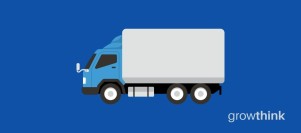 Box Truck Business Plan
Box Truck Business Plan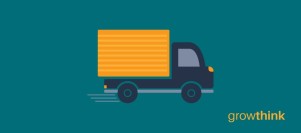 Hotshot Trucking Business Plan
Hotshot Trucking Business Plan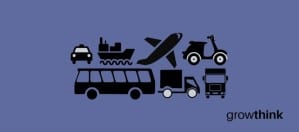 Transportation Business Plan
Transportation Business Plan Logistics Business Plan
Logistics Business Plan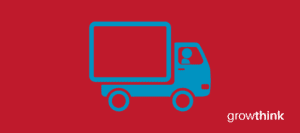 Trucking Company Business Plan
Trucking Company Business Plan